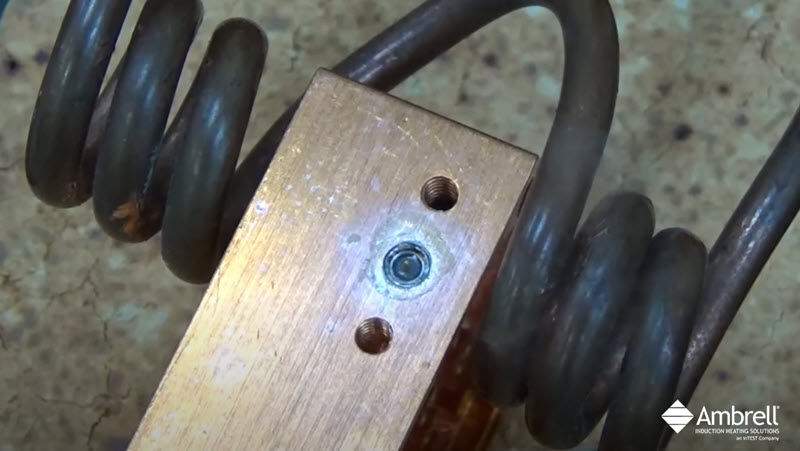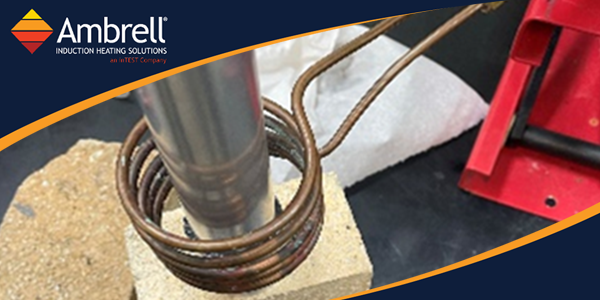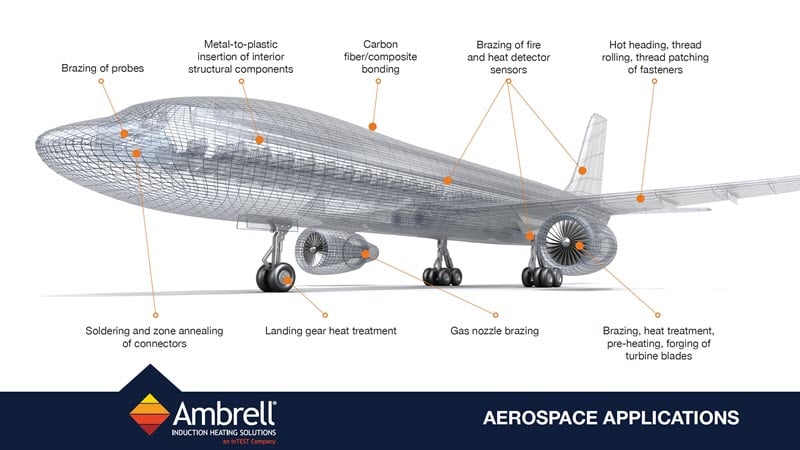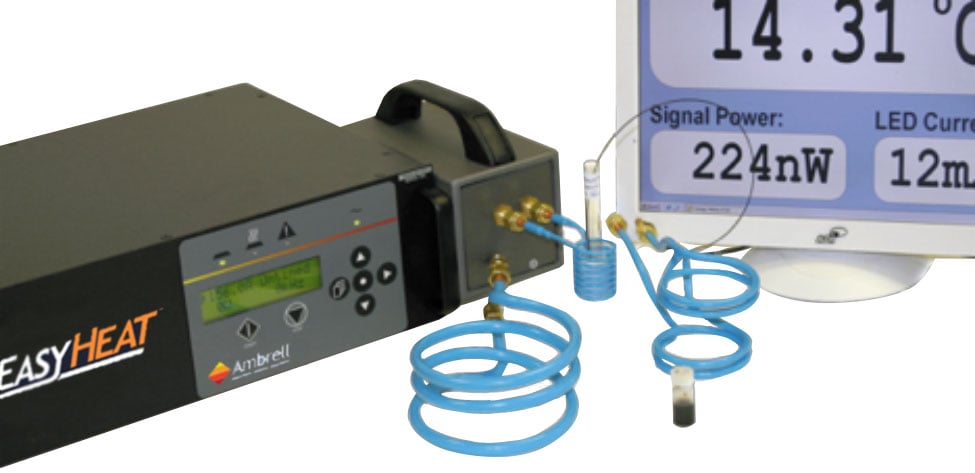Induction Brazing an Aluminum Assembly
Objective A company wanted to assess using induction heating for their aluminum assembly brazing process, and contacted THE LAB at Ambrell to utilize...
Applications
Applications: More
Applications: More

Industries:
Industries: More
Industries: More
Industries: More

Products:
Products: More
Services:
Services: More

Learn:
Learn: More
About:


THE LAB at Ambrell tested an induction heating application involving heating a copper assembly for soldering. This was a new process for the client, and they needed to heat a glass feed-through inside a copper block. The application engineers at Ambrell determined that an EASYHEAT™ 4.2 kW induction heating system was the right solution for their process and its requirements.
A custom-designed single position multiple-turn split helical coil was designed specifically for this soldering application. Initial tests were conducted to optimize the power delivered to the part. Temperature indicating paint that dissolves when the parts reaches target temperature (361 ºF/183 ºC) was then applied to the part. It was observed that the part achieved temperature within 40 seconds. The speed of heating and end-result met the client’s objectives.
Using induction heating for soldering offers numerous of benefits. Speed, precision, repeatability and safe, flameless heating while avoiding thermal stress are among them. In fact, induction heats the workpiece without making any physical contact. In this case, repeatability and the speed were the critical factors that led to their decision to choose induction heating for this soldering application.
This is just one of the many applications that THE LAB at Ambrell assesses every day. You can explore a full range of application notes from various industries on our website. And, of course, we welcome you to send in your parts for free testing.

Objective A company wanted to assess using induction heating for their aluminum assembly brazing process, and contacted THE LAB at Ambrell to utilize...

Induction heating is a process that uses electromagnetic fields to heat electrically conductive materials. It has been used in numerous industries...

Induction heating, a process that uses electromagnetic induction to heat electrically conductive materials, is often thought of for large industrial...